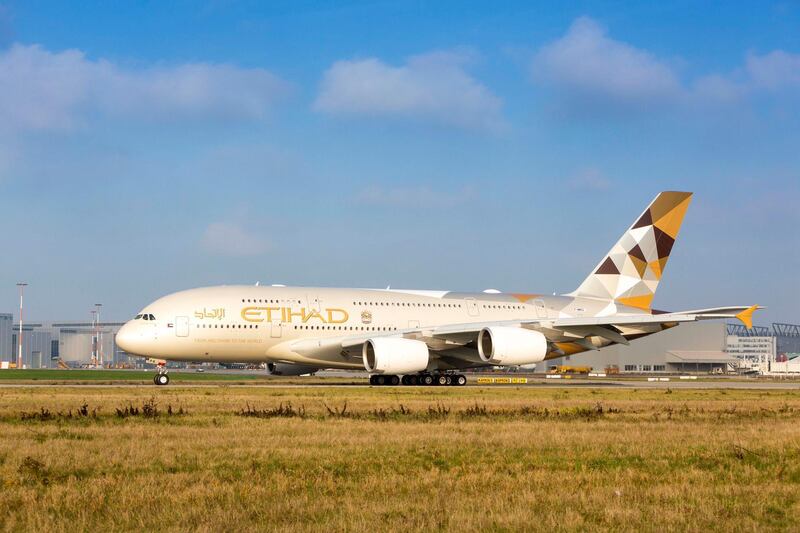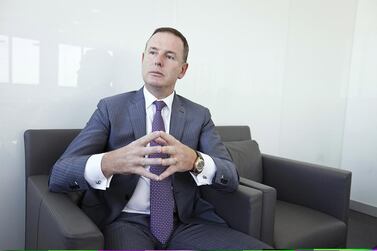Abu Dhabi’s state carrier Etihad Airways plans to cut carbon emissions to zero by 2050 and to 50 per cent by 2035 as part of its expanded commitment to environmental sustainability, its chief executive said on Wednesday.
The airline will start new internal initiatives as well as collaborate with industry partners to reach the new targets.
“The global focus on the environment and the urgency of reducing carbon emissions has never been greater,” Tony Douglas, group chief executive of Etihad Aviation Group said.
“Etihad Aviation Group, together with its partners, is taking an active role in reducing the impact of aviation on the environment through initiatives ranging from optimised fuel management to sustainable financing practices.”
Recent sustainability initiatives taken by Etihad Aviation Group include continued induction of the latest-generation, most fuel-efficient aircraft, including additional Boeing 787 Dreamliners.
Etihad also became the first airline to secure commercial funding conditional upon compliance with the sustainable development goals of the United Nations. In partnership with First Abu Dhabi Bank and Abu Dhabi Global Markets, Etihad recently secured 150 million Euros (Dh614m) to help finance the development of a multi-storey ‘eco residence’ for cabin crew living in Abu Dhabi.
The airline is also partnering in the development of sustainable aviation fuels as well as commitment to reduce single use plastics by 80 per cent by 2022.
The airline also started greenliner programme, in which the airline’s entire fleet of Boeing 787 aircraft will be used during normal scheduled flights as ‘test beds’ for sustainable products and practices, Etihad said on Wednesday.
The entire air transport industry, from airlines and suppliers to airspace providers, was responsible for helping to reduce aviation’s emissions, and solutions needed to be holistic and coordinated, not isolated and sporadic, Mr Douglas said.
He also said the new midfield terminal, which is expected to open “very shortly” will be one of the finest, designed based on environment friendly principles.
Etihad Airways which is in the midst of turnaround plan, is aiming to become profitable by 2023. The carrier teamed up with Air Arabia to jointly set up Abu Dhabi’s first low-cost airline to capitalise on growing demand for budget travel and back the capital’s tourism ambitions.
Air Arabia Abu Dhabi will operate out of Abu Dhabi International Airport and is expected to bolster Etihad’s turnaround plans. UAE cabinet earlier this month approved it as a national airline.







